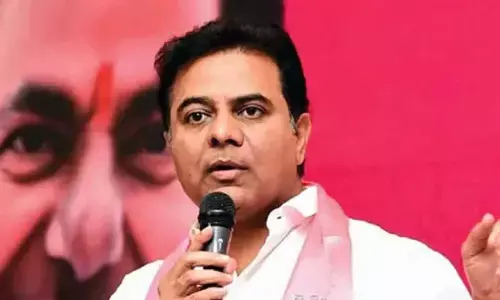Early-stage skilling in India: A game-changer for graduates

India’s higher education landscape has always been dominated by its IITs and IIMs.
India’s higher education landscape has always been dominated by its IITs and IIMs. Renowned for their academic excellence, cutting-edge research, and world-class faculty and facilities, graduates from these institutes have been at the top of every recruiter’s list. This excellence has come at a cost, however. In the shadow of these giants lie many tier-2 and -3 colleges. Often dealing with limited resources and a lack of recognition, these institutions struggle to attract industry leaders for campus placements. This leaves their students with fewer opportunities and a narrower range of choices. Fortunately, the emergence of early-stage skilling is rewriting the script, levelling the playing field, and offering students from Tier-2 and Tier-3 colleges a chance at success.
The emergence of early-stage skilling is poised to reshape this narrative and create a level playing field for graduates across the country.
Early-stage skilling: A breakdown
For students who graduate from institutions with not much recognition, early-stage skilling has the potential to be a game-changer. Teaching students practical skills that employers value helps connect what they learn with their future careers. This differentiates it from traditional educational curriculum, which primarily focus on theoretical knowledge. This hands-on approach to learning is especially critical given that a lack of adequate skills and training remains a primary concern for job seekers in India.
The rise of edtech firms has helped propel skill development as a viable educational avenue. The majority of skill development programmes rely on imparting a combination of hard and soft skills. The former is addressed through a variety of early-stage skilling programmes and internships, tailor-made to address the skill gaps frequently highlighted by employers. These provide students with a chance to enhance practical experience and competencies through first-hand experience. This encompasses a wide array of in-demand fields, such as coding, data analysis, and project management, making these learners valuable assets in the job market.
Internships as a critical component of skill development
Skill development programmes lead directly into another cornerstone of early-stage skilling - the internships. Through placement with a company in a relevant field, students are provided with an immersive experience in a real-world work environment. Applying classroom knowledge to practical scenarios builds further expertise and industry experience, and can be a transformative opportunity for tier-2 and -3 college students.
Successfully completing an internship can have a domino effect on a learner’s career trajectory. Gaining industry exposure can often result in a Pre-Placement Offer (PPO) – the holy grail of campus placements – since they guarantee a job even before the final exams are taken. The early skilling journey paves the way for PPOs, unlocking doors to more lucrative job opportunities post-graduation.
Per a recent survey, 79% of professionals, including freshers, upskilled their careers in 2022, and this number is projected to rise to 83% in 2023. The demand for skill proficiency also increased by 25% in 2022 and is expected to rise to 41% in 2025. No matter the industry, a structured skilling pathway is now crucial to long-term professional success.
As of 2022, over 6.5 million university graduated annually, only a tiny fraction are admitted into India’s top-tier universities. The rest graduate from not-so-top-tier colleges and are forced to compete for a limited number of jobs. Early-stage skilling offers the chance to level the playing field for graduates from tier-2 and -3 colleges. No longer confined by the limitations of their institutions, these students have the opportunity to showcase their skills and talents to potential employers, thereby shifting the focus from the pedigree of their college to their competence and capabilities. This democratisation of opportunity can reshape the future of employment.
(Written by Anil Nagar, Founder and CEO, Adda247 )















